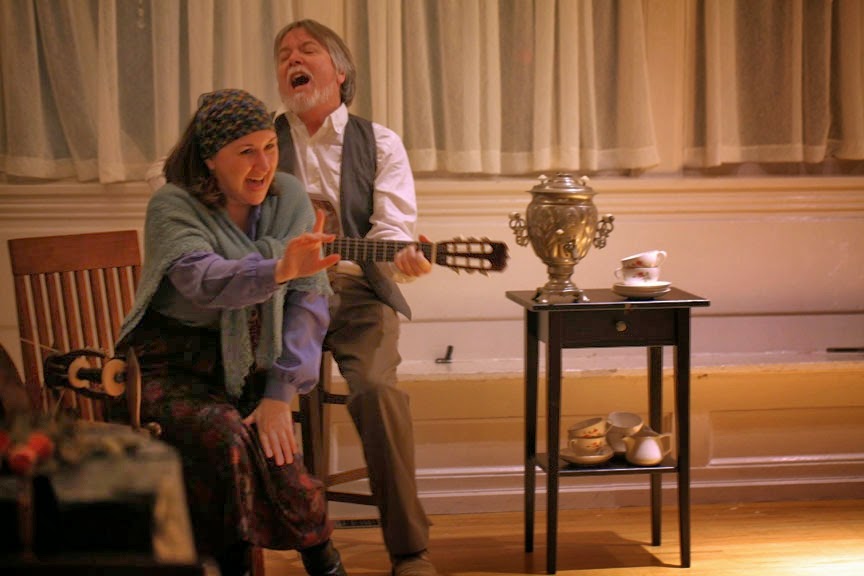.jpg) |
| Matt Giles, Danielle Barnum, Jared Michael Brown in "High Society" (photo Chris Bennion) |
SHOWTUNES is coming! Yup, their next production is at
Benaroya Hall, March 29 at 8:00pm and March 30 at 2:00pm. You only have two
chances to participate in the fun. They are the folks that choose older musicals
no one is likely to fully stage any time soon, and they put on a concert
version. They love to choose musicals with great music and High Society is definitely one that fits that bill.
David Hunter Koch directs and Mark Rabe music directs with a
young, energetic cast including Danielle Barnum (Tracy Lord), Jared Michael
Brown (Dexter Haven), Matt Giles (Mike Connor), John X. Deveney (Uncle Willy),
Katherine Strohmaier (Liz Imbrie), Matthew Posner (George Kittredge), Analiese
Guettinger (Dinah Lord), Valerie Piacenti (Margaret Lord), and Paul Klein (Seth
Lord) with Mallory King, Marissa Ryder and Mike Spee rounding out the Ensemble.
High Society is
based on the play The Philadelphia Story
by Philip Barry. There was a 1956 MGM movie musical made starring Grace Kelly,
Bing Crosby and Frank Sinatra. A stage musical version of High Society opened on Broadway in 1998 with a book by Arthur
Kopit. Some of Cole Porter songs you might know are: Just One of Those Things, Let’s
Misbehave, and It’s All Right With Me.
It’s the 1930s and Long Island socialite Tracy Lord is
planning a summer wedding to new beau George when her ex-husband Dexter turns
up and disrupts the proceedings. Similar
to society/celebrity weddings today, a nosey magazine reporter and photographer
are trying to get an exclusive scoop.
I think we all know what “high society” meant in the ‘30s,
with the focus being on the East Coast and the rich who party. Does is mean the
same thing today? It seems like today, the focus has shifted toward
celebrities, only, though a few rich young people turn into celebrities (think
Paris and Nicki Hilton). Usually we mean movie and television stars, and
sometimes sports stars.
Wikipedia tells us that “Cole Albert Porter (June 9, 1891 –
October 15, 1964) was an American composer and songwriter. Born to a wealthy
family in Indiana, he defied the wishes of his domineering grandfather and took
up music as a profession. Classically trained, he was drawn towards musical
theatre. After a slow start, he began to achieve success in the 1920s, and by
the 1930s he was one of the major songwriters for the Broadway musical stage.”
In the 1930s, then, he would have been part of “high society” and his musical
would reflect some insider knowledge.
After a very bad horseback riding accident, he wasn’t able
to continue his string of hits, until finally giving us Kiss Me Kate in 1948. In fact, Kiss
Me Kate won the very first Tony
Award for a musical!
Cole’s mother, Kate Cole, had been raised as a wealthy child
of the richest man in Indiana, with the best of everything, and her father
expected her to marry wealth. Instead, she married a druggist, Sam Porter!
Luckily, Kate’s father still thought Kate deserved the best and supported her
and her family as it expanded to include Cole.
Cole went to Yale, where he even wrote some “fight” songs
for their sport teams that are still used today. He also wrote full scale
musical productions for the Delta Kappa Epsilon fraternity and the Yale
Dramatic Association.
Defying his grandfather, after Cole enrolled at Harvard Law,
he switched to an arts and music focus. His mother always fully supported his
music career, and often covered for him to distract his grandfather from his
activities. Eventually he abandoned Harvard and moved to New York City to
continue writing musicals.
After college, Porter was well known as a gay man and,
similarly to many others of that time (Moms Mabley made her lesbianism part of
her comedy act without much controversy), that aspect didn’t appear to derail
his successes. He was a wealthy young man who attended all the highest society
parties.
In 1917, he moved to Paris and while continuing his social exuberance,
he was able to claim “war hero” status on this side of the water, making up
stories of working with the French Foreign Legion. The parties could be said to
be pre-cursors to those of rock-and-roll bands: sex (of many varieties), drugs,
and music.
By 1919, he began a long association with divorced American,
Linda Thomas. They became great friends and a useful partnership when he
married her as a kind of business arrangement. They remained married until her
death in 1954. The marriage helped protect his reputation when cultural shifts
made his gay lifestyle less palatable to the public.
Other Cole Porter musicals include Anything Goes, Can-Can
and Silk Stockings. Songs we know, even if we have never seen his musicals,
include popular singles Night and Day,
I Get a Kick Out of You, I've Got You
Under My Skin, My Heart Belongs to Daddy, You're the Top and You'd Be So Easy to Love.





.jpg)